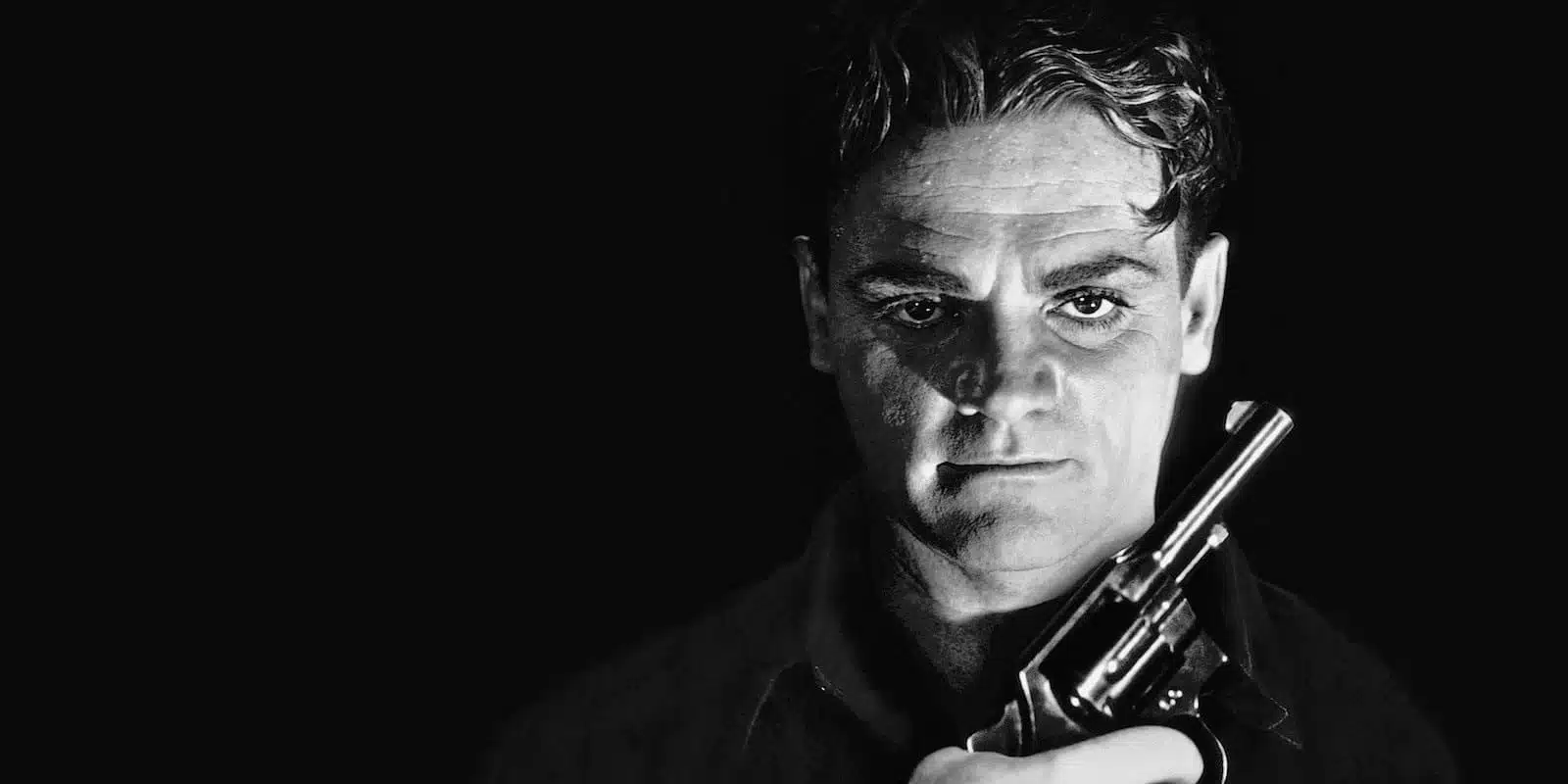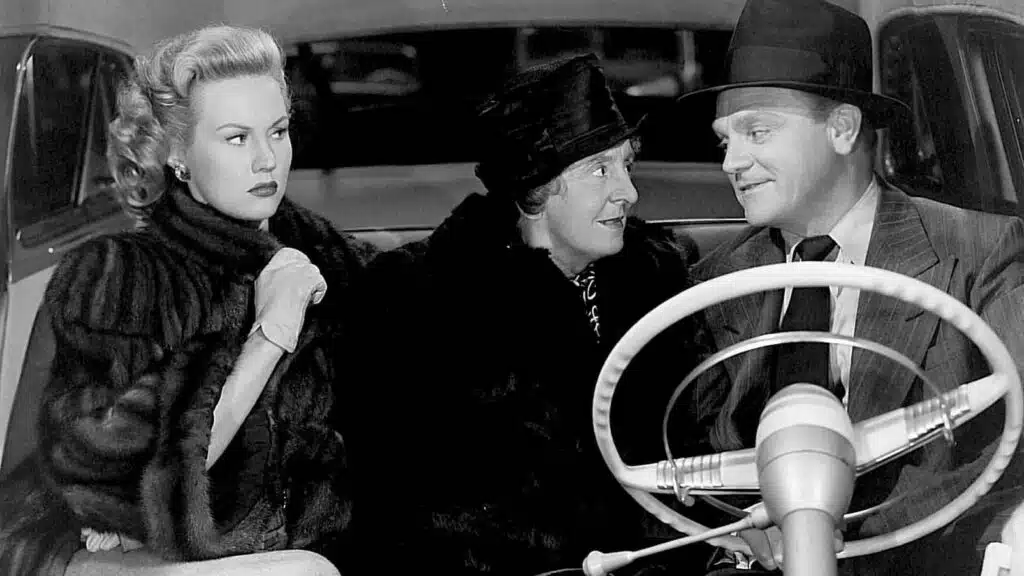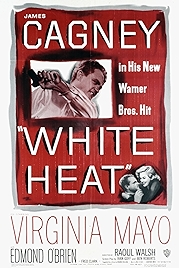1949’s White Heat features one of the most famous screen criminals, in one of the most famous gangster movies ever made. But was Arthur “Cody” Jarrett, the character James Cagney plays, sexually off the straight and narrow? A mother-loving gang leader prone to swooning headaches who can’t satisfy his wife – whatever else Cody is, he’s a strange kind of protagonist. But then this is the 1940s and Cody’s not meant to be likeable.
This is the story of a smart but crazy criminal who, in the film’s opening scenes, murders four men as part of a raid on a train and then, as the law starts circling, admits to a lesser crime to set up an alibi. Off to jail Cody goes for a minor robbery, followed by a cop (Edmond O’Brien) working undercover and hoping that Cody will blab about the train job while inside. He does… a bit. But before the information can be put to proper use, the cop gets involved in Cody’s eventual jailbreak, with the whole thing ending famously on top of a fuel container. Here Cody makes his “Made it, Ma! Top of the world!” declaration before a gigantic explosion sends him off to be reunited ecstatically with his beloved, recently departed mother.
There are several important relationships in this movie – Cody and his dismissive gold-digger wife (Virginia Mayo), who’s permanently eyeing Big Ed, one of Cody’s men. Cody and the resourceful, brave cop, Hank (Cody knows him as Vic), who befriends him inside. But most important of all is the one between Cody and his mother, Ma Jarrett (Margaret Wycherly), a sly and clinging woman controlling her son via emotional manipulation and a relentless commentary on Cody’s progress in the world. Cody is stuck at an important psychological stage of development unable to break free of his mother, hence the awful headaches, psychotic outbursts of temper and a libido that’s misaligned, or so the Freud-influenced shrinks of the time would probably have it.
It’s a strange and far from straightforward movie capable of being read in a number of ways. Ignoring the Freudian subtext it’s clearly a slight return of the 1930s gangster movie which had made Cagney’s name, and which he’d been striving to distance himself from ever since. Several years away from Warner Bros making movies for his own production company – all of them flops – had propelled Cagney reluctantly back to Warner’s and, because he needed a hit, even more reluctantly into this gangster movie.
You’d never know. He’s brilliantly caustic as Jarrett: tough, swivel-eyed, a frightening psycho who’s also noticeably light on his feet (is this the character, or Cagney’s dancer background?).
Cagney is well served by Raoul Walsh’s slick direction, cinematographer Sidney Hickox’s noirish but crisp lighting and Owen Marks’s tight, fast editing. This movie bounces along at a speed to match Cagney’s rapid-fire delivery. Max Steiner’s big, dramatic score adds to the forward movement but in swirls of strings regularly cascading down the scales, he indicates that things will not end on a positive. Fate is at work.
Walsh is at his best in the set pieces. The raid in the film’s opening moments. The “accident” in the workshop where Big Ed, operating remotely, tries to have Cody killed in prison. The moment Cody hears his mother is dead (improvised – the extras were genuinely shocked). The breakout. The big finish atop a gasometer. Each has an iconic aspect as if Walsh were saying, “Here’s how you do this!”
The movie was written by Ivan Goff and Ben Roberts, who drop in easter eggs for fans of Cagney’s old gangster movies. Fans of 1970s fluff can fill their boots too – Cody is modelled on Arthur “Doc” Barker, son of gang leader Ma Barker (immortalised as Ma Baker in the song by the band Boney M). And Goff and Roberts are famous for creating the TV show Charlie’s Angels. Compare and contrast, if you like.
White Heat – Watch it/buy it at Amazon
I am an Amazon affiliate
© Steve Morrissey 2024


